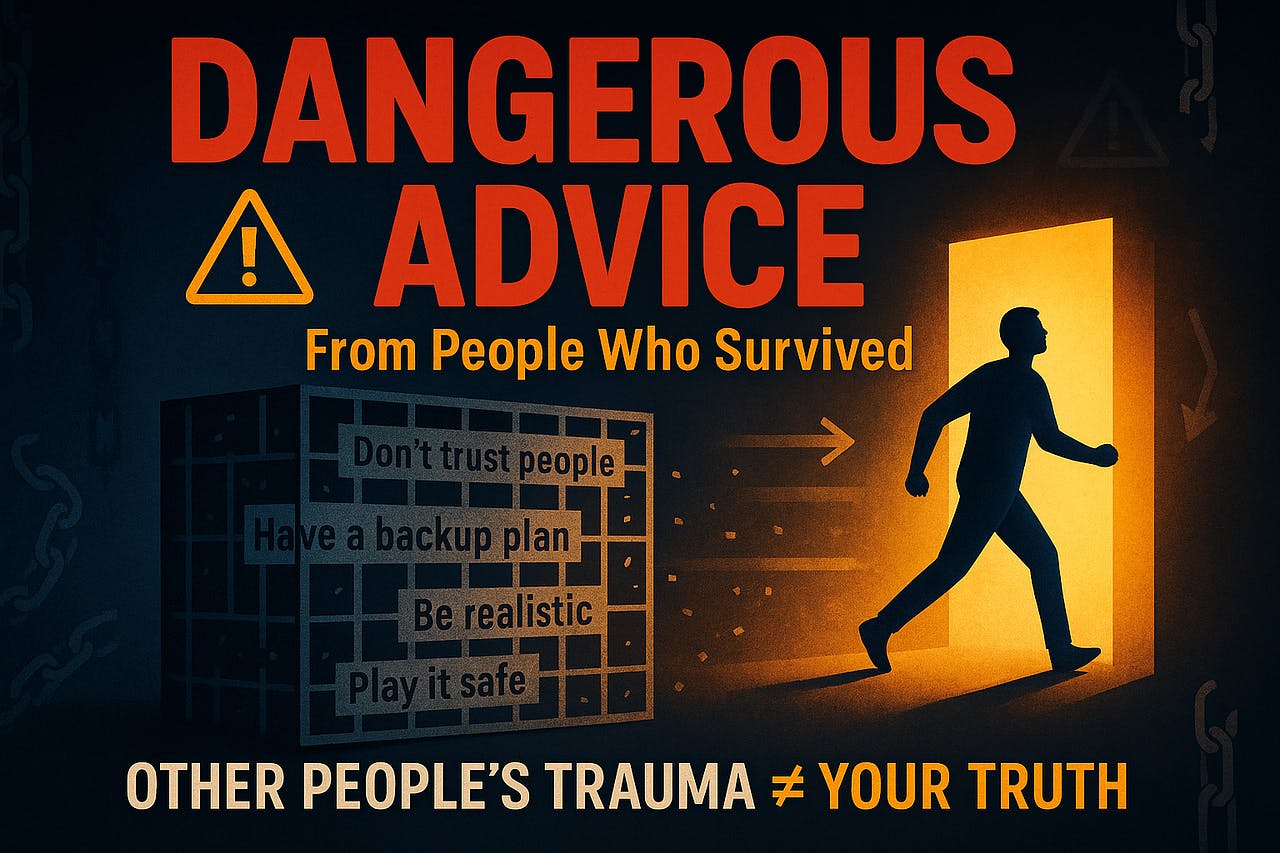
"Most limitations you've accepted aren't based on what's possible - they're based on what went wrong for someone else."
"The person who tells you 'don't trust people' might have had terrible judgment about who to trust."
"None of these are universal truths. They're just coping mechanisms that got popular."
"Every single piece of conventional wisdom exists because someone got burned and decided their burn should become everyone else's rule."
Conventional wisdom often represents the traumas of others disguised as advice. Phrases like "Don't trust people too quickly" and "Always have a backup plan" are rooted in individual experiences of betrayal and disappointment. These sayings are not universal truths; instead, they reflect personal coping mechanisms popularized through shared narratives of failure. Limitations accepted as wisdom may not be based on one's actual possibilities but rather on past mistakes of others. Personal context, resources, and knowledge vary, meaning each individual's path should not be restricted by another's fears or misjudgments.
Read at Hackernoon
Unable to calculate read time
Collection
[
|
...
]